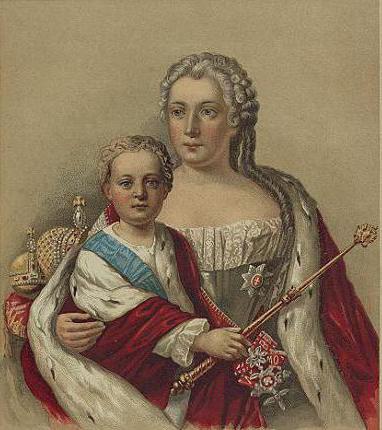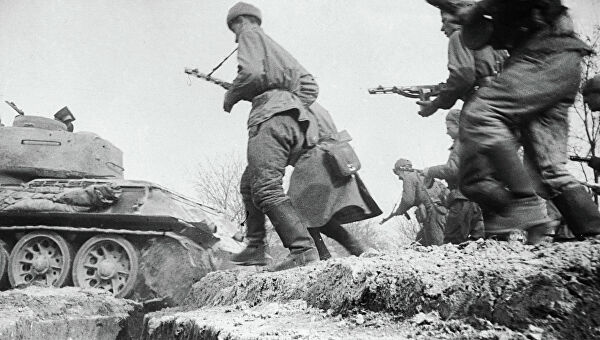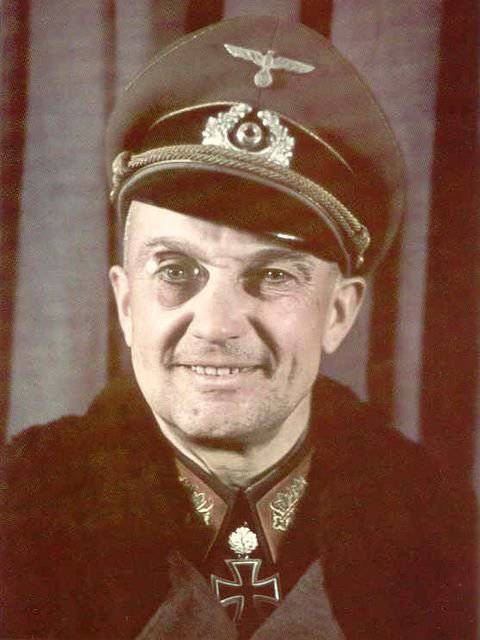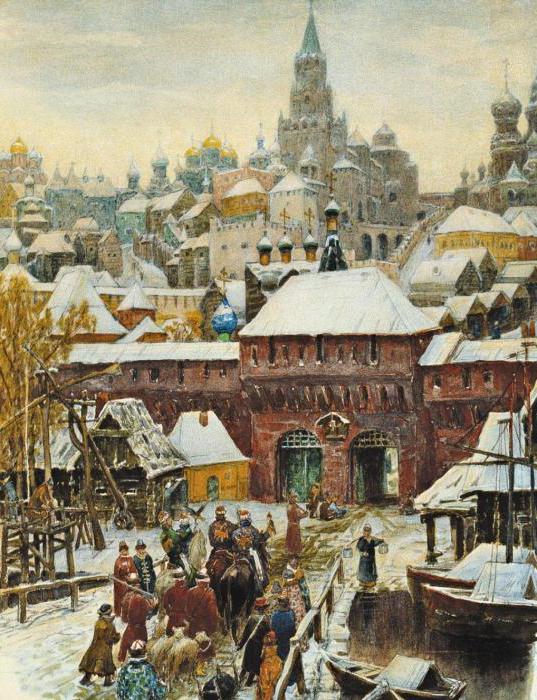T. Hobbes on the "war of all against all"
What is the theory of the origin of the state, the basis of which is expressed by the author of the text. Write out the author’s phrase arguing your answer.
In the absence of civil status, there is always a war of all against all. From this it is obvious that while people live without a common power that keeps everyone in fear, they are in a state called war, namely, in a state of war of all against all. For war is not only a battle, or military action, but a period of time during which the will to fight by battle clearly manifests itself.
The state of war of all against all is also characterized by the fact that with it nothing can be unjust. The concepts of right and wrong, fair and unjust have no place here. Where there is no common power, there is no law, where there is no law, there is no justice. Strength and treachery are two cardinal virtues in war.<...> This state is also characterized by the absence of property, possession, lack of precise distinction between mine and yours. Each person considers his only what he can get, and only as long as he is able to keep it.
<...> The goal of the state is primarily to ensure security. The ultimate reason, purpose, and intent of people (some by nature love freedom and domination over others) when they overtake themselves (by which they are connected,<...> living in the state) is the concern for self-preservation and at the same time for a more favorable life. In other words, when establishing a state, people are guided by the desire to get rid of the disastrous state of war, which is a necessary consequence of the natural passions of people where there is no appearance of power, keeping them in fear and under threat of punishment, forcing them to fulfill agreements and observe natural laws.
<...> Such a common power that would be able to protect people from the invasion of aliens and from the injustices inflicted on each other, and<...> to give them that security in which they could feed on the labors of their hands and on the fruits of the earth and live in contentment, can only be erected in one way, namely by concentrating all power and strength in one person or in a gathering of people, which could by majority vote to reduce all the wills of citizens into a single will. This person or assembly of people consists of the essence of the state, which needs the following definition: the state is a single person, responsible for the actions of which a great many people have made themselves by mutual agreement so that this person can use the power and means of all of them in such a way as deemed necessary for their peace and common protection.
Explanation.
The correct answer should include:
Theory of a social or mutual agreement (author T. Hobbes may be indicated)
Quote from the text: “In this person or assembly of people is the essence of the state, which needs the following definition: the state is a single person, responsible for the actions of which a great many people have made themselves by mutual agreement so that this person can use force and "means of all of them as he deems necessary for their peace and common defense."
This model is close to the model proposed by Hobbes. In his opinion, the source of the negative principle is nature (non-political social), and the positive carriers are institutions (political or civil society). For Hobbes, a person is a victim of passions that can be qualified as social to the extent that they are related to human relationships, although at the same time these passions are opposite to sociality, since people in their “natural state” are involved in passionate destructive over-conflict. The natural state is characterized primarily by equality prevailing in it: all people are equal, because everyone, even the weakest, has enough strength to kill the strongest (by resorting to tricks or teaming up with others). But the equality of people in their natural state also consists in the fact that all of them, through experience, acquire caution and practical wisdom. This creates equality in skills and abilities, as well as in the hope of achieving their own goals.
Three causes of war in human nature follow from this: rivalry, distrust and love of glory; three types of aggressiveness associated with the pursuit of profit, safety and fame.
Rivalryarises because people who want the same thing become enemies. In fact, if the aggressor has nothing to fear but the strength of other people, if some plant, sow, build, live in a convenient place, it is likely that others, combining their forces, will try in every possible way not only to deprive them of property and the fruits of their labor, but and rob them of life and freedom. Such an aggressor himself will become a likely victim of another aggression.
So the universal is born mistrust,for caution requires proactive actions to subordinate a sufficient number of people to no longer fear hostile forces. However, in this way it is impossible to achieve a state of equilibrium, because there are people who, in the pursuit of power, will be ready to cross the threshold of their own security, and then others, in order to preserve themselves, must also increase their strength.
Finally, love of fame(pride) arises because in the conditions of public life everyone wants others to respect him as much as * he
PART I. Institute of Politics
respects himself; at the same time, seeking to achieve recognition of his own significance, he may not stop to harm others.
Therefore, as long as people are not subordinate to general authority, they are naturally endowed with rights, but their natural rights come into many contradictions and because of this completely lose their effectiveness: everyone can appropriate what he wants, but nobody's property is guaranteed. In the absence of institutions that keep people in obedience, they are in a state of war of all against all (bellum omnium contra omnes), which hinders the development of technology, art, knowledge, and, moreover, find themselves in a position comparable to that of American savages. And then “a person’s life is lonely, poor, hopeless, dull and short-lived” (Leviathan, ch. XIII). With the creation of civil society, commonwealth(single market), republic, state, people conclude an “agreement” between themselves, according to which everyone transfers part of their rights in different areas to a sovereign ruler (sovereign or assembly). Having limited themselves only to the necessary freedom, they renounce those rights that interfere with mutual peace, and then social life becomes politicized and, as a result, pacifies. Institutional sovereignty (sovereignty not in the sense of monarchy, but in the sense of possessing supreme power) creates a political community: by mutual agreement, it receives from people the right to use the strength and resources of all in the interests of peace and collective defense. A political “subject” arises as a rational and rational person, using these qualities to avoid a quasi-animal state and come to a full-fledged human life.
So, in contrast to Aristotle, Hobbes does not believe that man is a political animal, but believes that politics turns an animal into a person: Rousseau also claims the same, believing, however, that the transition from a natural state to a political state is a negative phenomenon, although it is inevitable and irreversible.
Bellum omnium contra omnes) - the concept of social philosophy of Thomas Hobbes, describing the natural state of society before the conclusion of the "social contract" and the formation of the state.To substantiate his ideas about the state, Hobbes resorts to the already tested reception of the image of the "natural state". In it, all people are equal, and each is guided by its needs and interests. A man is selfish, he is endowed with strong passions, desires power, wealth, pleasures. The principle of his behavior is extremely simple: a person seeks to get as many benefits as possible and to avoid suffering. The freedom of man. Everyone has the right to everything, even to the life of another person. This leads to constant conflict, to the inability to ensure the public good and protect oneself from evil. So there is a war of all against all.
First introduced in the treatise "Leviathan".
Write a review on the article "The war of all against all"
References
Excerpt from the War of All Against All
Sonya felt that it was true that the only way to correct Rostov’s affairs was to marry a rich woman and that the princess was a good party. But she was very bitter. Despite her grief, or perhaps precisely because of her grief, she took upon herself all the difficult worries of orders for cleaning and packing and was busy all day. The count and countess turned to her when they needed to order something. Petya and Natasha, on the contrary, not only did not help their parents, but for the most part everyone in the house was annoyed and disturbed. And the whole day they were almost heard in their house running around, screaming and causeless laughter. They did not laugh and rejoice at all because there was a reason for their laughter; but their hearts were joyful and merry, and therefore everything that happened was a cause of joy and laughter for them. Petya was having fun because, having left the house as a boy, he returned (as everyone had told him) a young man; it was fun because he was at home, because he was from the Bila Tserkva, where there was not soon hope of getting into a battle, he ended up in Moscow, where they will fight the other day; and most importantly, it was fun because Natasha, whose mood he always obeyed, was cheerful. Natasha was cheerful because she had been sad for too long, and now nothing reminded her of the reason for her sadness, and she was healthy. She was also cheerful because there was a man who admired her (the admiration of others was that wheel ointment that was necessary for her car to move completely freely), and Petya admired her. Most importantly, they were cheerful because the war was near Moscow, that they would fight at the outpost, that they would distribute weapons, that everyone would run away, go somewhere that something unusual was happening that was always joyful for a person, especially a young one.War of all against all
From the Latin: Bellum omnium contra omnes (bellum omnium contra om-nes).
From the work "Elements of the Law of Natural and Civil" (1642) by the English philosopher Thomas Hobbes (1588-1679). In this work (part 1, chap. 12), he writes: “There is no doubt that war was a natural state of man until society was formed, and moreover, not just a war, but a war of all against all.” The philosopher will later repeat the same expression in his work Leviathan (1651), in the first part (chapters 13-14).
Allegorically: about enmity and competition, about the absence of solidarity and the rules binding on all, about the transformation of society into a mass of individuals who are at war with each other.
- - the term marine insurance, which from a legal point of view means "insured against all possible types of risk" ...
Big economic dictionary
- - Neism. 1. With ultimate strength, very strong, intense. \u003d With all my might. With verb. nesov. and owls. types: screaming, working, yanking, shouting, grabbing ... how? . Dina pulls his hands on his shirt, she laughs ...
Educational phraseological dictionary
- - From English: You can fool some of the people all the time, and all of the people some of the time, but you cannot fool all of the people all the time. The words of the 16th President of the United States, Abraham Lincoln ...
Dictionary of winged words and phrases
- - Cm....
- - Frowning at a person whose actions are bewildering, protest ...
Dictionary of folk phraseology
- - Wishing disasters to others ...
Dictionary of folk phraseology
- - ...
Spelling dictionary of Russian language
- - See UM -...
IN AND. Dahl. Proverbs of the Russian people
- - Gola Matryona is terrible for everyone, and covered with a poppy - for all the walker ...
IN AND. Dahl. Proverbs of the Russian people
- - Cm....
IN AND. Dahl. Proverbs of the Russian people
- - One against all will not be fooled ...
IN AND. Dahl. Proverbs of the Russian people
- - I ask not all by name, but all without exception ...
IN AND. Dahl. Proverbs of the Russian people
- - Cm....
IN AND. Dahl. Proverbs of the Russian people
- - Book. Shuttle. About an unfriendly team, a society torn by squabbles and strife. ShZF 2001, 41. / i\u003e Tracing paper with lat. bellum omnium contra omnes. BMS 1998, 93 ...
- - Zharg. pier Shuttle.-iron. About an extremely stupid person. Maximov, 67 ...
Great Dictionary of Russian Sayings
- - Zharg. journal A virtual candidate in the elections, a symbol for voting results according to the column “against all”. INNS, 60 ...
Great Dictionary of Russian Sayings
"War of all against all" in books
Chapter 23 War of All Against All (1613-1618)
From the book of Boyar Romanov in the Great Troubles the author Shirokorad Alexander BorisovichChapter 23 The war of all against all (1613-1618). The title of the chapter, apparently, perplexed a significant part of the readers - for now both the media and venerable historians unanimously argue that, having elected Mikhail Romanov, the Russian people united and the Time of Troubles ceased. Alas in
Syria unleashes the struggle of all against all
From the author’s bookSyria unleashes the struggle of all against all. Conversation with the head of the Institute for Democracy and Cooperation, President of the Historical Perspective Fund Natalia Narochnitskaya. In March of this year. Institute of Democracy and Cooperation in conjunction with the Imperial Orthodox
War of all against all
From the book Encyclopedic Dictionary of Winged Words and Expressions the author Serov Vadim VasilievichThe war of all against all From the Latin: Bellum omnium contra omnes [bellum omnium contra kom om]. From the work “Elements of the Law of Natural and Civil” (1642) by the English philosopher Thomas Hobbes (1588-1679). In this work (part 1, chap. 12), he writes: “There is no doubt that the war was natural
1996: war of all against all
From the book The main switch. The heyday and death of information empires from radio to the Internet by Wu Tim1996: The War of All Against All The election of Bill Clinton did not reverse the wave of deregulation. He had to agree that the "era of big government" is over - an opinion that related to both the regime’s interference in the economy and the concept
War of all against all
From the book The Origins of Altruism and Virtue [From Instincts to Cooperation] by Ridley MattThe war of all against all. A considerable part of my book is a modern rediscovery - with the addition of genetics and mathematics - as old as the world of philosophical debate under the name "perfecting man." In different formulations and in different eras, philosophers
Free yourself from all ideas, from all thoughts, from all desires
From the book Superintuition for Beginners the author Tepperwein KurtFree yourself from all ideas, from all thoughts, from all desires. This will most easily be achieved if you only accept any information that requires perception of the image, color, emotions, refraining from evaluations. Try to simply register everything that is included in your
War of all against all
From the author’s bookThe war of all against all Recently, we managed to escape for two weeks from the Moscow cold and darkness on the shores of the Mediterranean Sea, in the Spanish countryside. The place is not pathos, from the category of "economy". Spain itself also doesn’t bathe in chocolate - unemployment reaches 25%. Somewhere
WAR OF ALL AGAINST ALL
From the book Armageddon tomorrow: a textbook for those who want to survive the authorTHE WAR OF ALL AGAINST ALL The years have been tested by hoof and stone, Water has been saturated with immortal wormwood, - And the bitterness of wormwood on our lips ... We don’t have a knife for the brush, Pen - not for the liking, Pickaxe - not for the honor, And glory - not for the glory: We - rusty leaves on rusty oaks ... A little wind, a little north
Part I. Fifth World War Chapter 0. New Nomads Against All
From the book Wrath of the Orc the author Kalashnikov MaximPart I. Fifth World War Chapter 0. New Nomads Against Everyone Have you ever thought about the world in which we live today? Is it peace or war? Today's peace is war. Such is the property of modernity, in which the line between peace, war and different types
“Thirst for money”: “war of all against all”
From the book On Interest on Mortgage, Jurisdiction, Reckless. An anthology of modern problems of “monetary civilization”. the author Katasonov Valentin Yurievich“Thirst for money”: “war of all against all” It should be noted that before the “market economy” (“monetary civilization”), relations between people were quite tense. However, a total “war of all against all”, however, was not observed. Yes, between individual social
War of all against all
From the book Armageddon tomorrow (a textbook for those who want to survive) the author Kalyuzhny Dmitry VitalievichWar of all against all
War against all
From the author’s bookWar against all Network warfare from the very beginning, on the basis of this, has been conducted not only against opponents. It is waged against allies and friends. The Americans themselves are talking about this in the description of this strategy. It is fought against everyone and always, if only because today's
the author Lopukhin Alexander19. Introduce also into the ark (from all cattle, and from all reptiles, and) from all animals, and from all flesh in pairs, so that they remain alive with you; male and female, let them be. 20. From (all) birds according to their genus, and from (all) cattle according to their genus, and from all reptiles on the earth across
1. And God remembered Noah, and all the beasts, and all the cattle, (and all the birds, and all the creeping reptiles) that were with him in the ark; and God brought the wind to the earth, and the waters stopped
From the book Explanatory Bible. Volume 1 the author Lopukhin Alexander1. And God remembered Noah, and all the beasts, and all the cattle, (and all the birds, and all the creeping reptiles) that were with him in the ark; and God brought the wind to the earth, and the waters stopped "And God remembered Noah ..." "Let us, beloved, understand these words godly, and not in that rough
11. The standard dream of all members of the CH is that the CH are first in all major cities, and then in all the rest
From the book Sect Studies the author Dvorkin Alexander Leonidovich11. The standard dream of all members of the CH is that the CH is first in all major cities, and then in all the rest. I will give an interview with the leader of the Moscow CH, Mikhail Rakovschik, which was given to them by the underground journal of the CH, a few years ago. Fleming was no longer
To the question, what does the expression "war of all against all" by Hobbes mean? set by the author Maigda the best answer is Considering a person from a political ethical point of view, Hobbes follows the same deductive, mathematical method as in physics. Ethics and politics are closely related, because all ethical concepts begin only with the transition of people from the state of nature to the state of the state. By nature, all people are equal to each other. From this natural state of equality of all people, a war of all against all (bellum omnium contra omnes) should arise. People are not sociable by nature, as Aristotle taught, but seek only to rule one over the other, which leads to war. But the state of war is a state of fear and danger, from which it is necessary to get out; therefore, the world is the first requirement of a natural law expressing the rule of abstinence of each individual from what is harmful to him. To achieve peace, each person must renounce his unlimited right to everything. This refusal can be made either in the form of renunciation, or in the form of transferring the rights of one person to another. In the second way, that is, by transferring the rights of all to one or more persons, a state is created. All rights without exception are transferred to a state that is unlimited. The submission of state power is unconditional, for disobedience of state power would lead again to a war of all against all. Having enumerated the rights of the state (peace protection, censorship of teachings, establishment of laws, court, declaration of war, establishment of administration, awards), Hobbes attributes them to the supreme authority. States are of three kinds: democracy, aristocracy and monarchy. Of these three forms of state, only the monarchy reaches its cedar — the safety of citizens, and there is, therefore, the best. The duty of the monarch is the public good (salus publica suprema lex). For its protection, the supreme power has omnipotence, since it is accessible to man, and an individual citizen in relation to the supreme power is completely powerless and insignificant. The representative of the supreme power, as a source of laws, stands above them; he defines the concept of fair and unjust, honest and dishonest, mine and yours. He is responsible only to God. Only when the supreme power is unable to protect the world against internal or external enemies, citizens are not obliged to obey it. Supreme authority defines both religious dogmas and cults. The spiritual and secular power are united in one person by the church and the state constitute an indissoluble whole.
OWN WORDS. People were originally born different (although at first glance everyone is equal and the same), someone has the makings of a leader, and he aspired to power, someone prefers to "stay out" all his life. People who seek power in any way sometimes use any goals that are far from specious, which cause hostility and envy, and very often the desire for power leads to wars. Peace is the first requirement of natural law. To achieve peace, each person must renounce his unlimited right to everything. Hobbes believes that such a refusal can be made either in the form of abdication, or in the form of transferring the rights of one person to another (or several persons), i.e. to the state. All rights without exception should be transferred to the state, whose power should be unlimited. Obedience to state power must be unconditional, otherwise disobedience of state power will again lead to a war of all against all.







